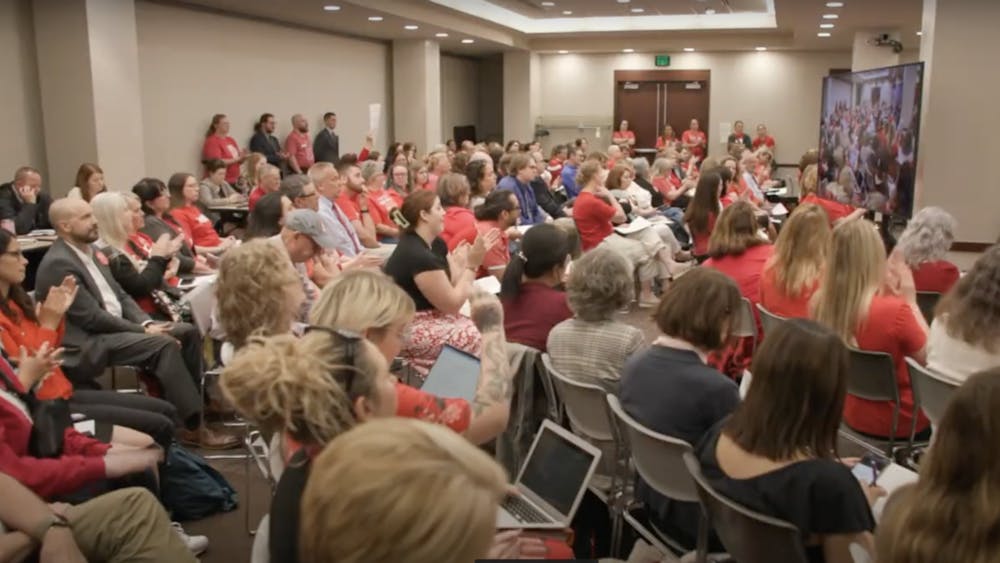Mark LaPointe used to carry a gun to teach about the Civil War. Now he uses a
guitar.
He’s been a living history re-enactor since 1995, donning the blue wool of a Civil War infantryman. A musician by trade, he found performing the music of the mid-19th century a better hobby than participating in traditional re-enactments.
“I thought of turning it into a musical thing instead of running around the woods with a rifle,” LaPointe said.
On Tuesday, he performed at the Monroe County History Center as part of the Monroe County Civil War Roundtable.
The Monroe County Civil War Roundtable meets at 7 p.m. the second Tuesday of the month, September through June, at the History Center.
Steve Rolfe, current secretary and former president of the group, said the meetings usually involve lectures and talks from scholars, but LaPointe’s performance was so successful in 2011, the group decided to bring him back.
“We usually have a bunch of gray-haired guys standing around, talking about whether Robert E. Lee was a traitor or what’s the cause of the war, was it states’ rights of whatever else,” Rolfe said.
LaPointe set the stage at the History Center with period props to give the feel of an infantry camp in the 1860s.
There was a framed portrait of Abraham Lincoln resting on a box that had “1000 .58 BAL CARTRIDGE” stenciled onto the side. A Union flag was hanging nearby, and a lantern with a lightbulb for a candle sat on the ground.
The musician was dressed in a dark blue Union cap; a heavy, wool Army-issue jacket and blue slacks. He played a period-style parlor guitar and drank water from a tin cup at his feet.
He played the songs of Irish immigrants who came to America during the late 19th century looking for work. Many were signed up as volunteers in the Union Army when they couldn’t find employment in the North.
One of those songs was “The Irish Volunteer,” which was popular among immigrant infantrymen who fought in the American Civil War.
Throughout the performance, LaPointe urged people to sing along with the songs such as “Tenting Tonight” and “Lincoln and Liberty” but to mostly no avail.
“Music was home because it was something that they sat around on porches in the evenings and played and sang songs,” Rolfe said.
Near the end of the performance, he urged the audience to join him in one final tune.
“This is a sing-along number,” he said. “I promise you it doesn’t hurt. Unless you’re up here by yourself and nobody sings with you.”
He began strumming along with a hymn in the G key. It was uplifting but at the same time melancholy and fatigued.
“Mine eyes have seen the glory of the coming of the lord,” he sang.
Other voices joined in, catching up on the tune.
“He is trampling out the vintage where the grapes of wrath are stored,” they all sang.
“He hath loosed the fateful lightning of his terrible swift sword. His truth is marching on.”
On the projector screen, pictures flashed of young men, dirtied and tired in camps across the South.
“Glory, glory hallelujah,” they sang. “His truth is marching on.”
Closing your eyes, you could imagine the tune drifting across a bloodied battlefield in Pennsylvania, in Tennessee, in Virginia, in Georgia as men lay down after a long day of killing to share stories and sing songs.
“With a glory in his bosom that transfigures you and me, as he died to make men holy, let us die to make men free,” they sang. “As God is marching on.”
Musician sings about Civil War, immigrants
Get stories like this in your inbox
Subscribe





